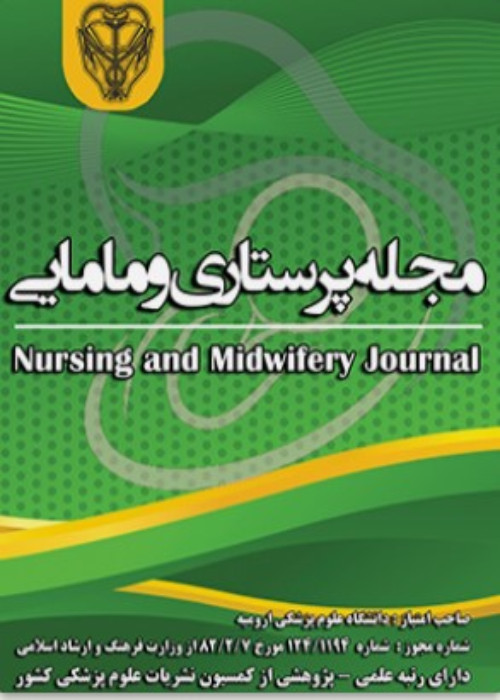EFFECT OF PEER EDUCATION ON SYMPTOMS CLUSTER AND SELF-EFFICACY IN PATIENTS WITH BREAST CANCER
The number of survivors of breast cancer is increasing due to improvements in early detection and treatment. However, after treatment, the survivors often experience Unpleasant symptoms such as pain, sleep disorders, anxiety, and fatigue, which are referred to as cluster symptoms. These symptoms influence the patient's functional status and self-efficacy. Peer education can use to improve of well-being and self-efficacy, as well as to reduce the unpleasant physical and psychological symptoms of breast cancer patients. The purpose of this study was to determine the effect of peer education on cluster symptoms and self-efficacy in breast cancer patients in the experimental and control groups with a comparison design before and after.
This study was a randomized clinical trial. The sample was 100 women with breast cancer. That were selected randomly and assigned to two groups of test and control. Before and after the intervention, demographic questionnaires, Sherer self-efficacy, Scherer self-efficacy, McGill Pain Questionnaire, Beck Anxiety Measurement, Piper Fatigue scale, Pittsburgh Sleep Quality Index were completed for both groups. The training was carried out by a peer group during 8 sessions. The data analysis was done with descriptive and inferential statistics in SPSS software.
Findings showed that 50 patients in each group did not have a significant difference in age and family history of cancer. The mean score of cluster symptoms in post-test in control group and test group respectively were the pain severity 49.89 ± 5.31 & 41.9 ± 5.68, the anxiety 34.34 ± 9.62 &27.82±10.06 and the fatigue123.15±16.72 & 96.18±48.51. The sleep quality was 10.46 ± 1.71 & 7.01 ± 1.47. The mean score of self-efficacy in post-test in control group and test group was 61.32 ± 12.26 & 61.38±12.26, which was significantly different in all cases (P <0.05).
Based on the results of peer education, it has improved the cluster symptoms and self-efficacy in patients with breast cancer. Therefore, it is recommended that nurses and others health professionals, create the formation of support groups and training by peers. Peer education Use it as a complementary method along with other care interventions
Education , Symptoms , Pain , Sleep Hygiene , Anxiety , Fatigue , Elf Efficacy , Breast Cancer
- حق عضویت دریافتی صرف حمایت از نشریات عضو و نگهداری، تکمیل و توسعه مگیران میشود.
- پرداخت حق اشتراک و دانلود مقالات اجازه بازنشر آن در سایر رسانههای چاپی و دیجیتال را به کاربر نمیدهد.


